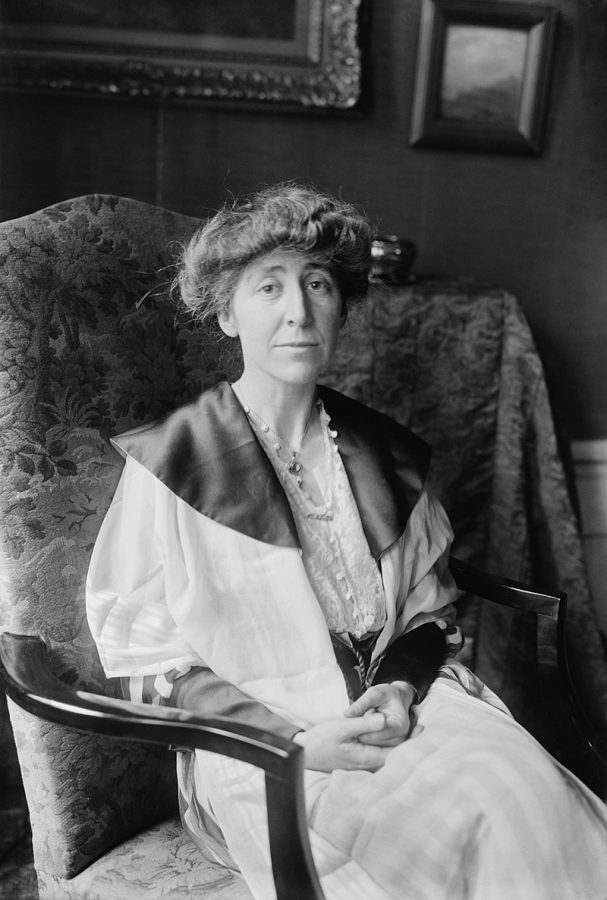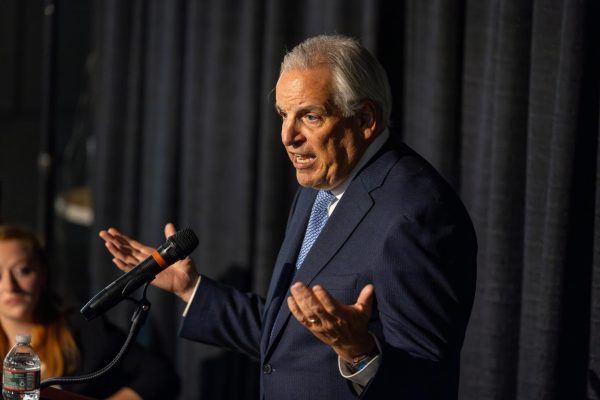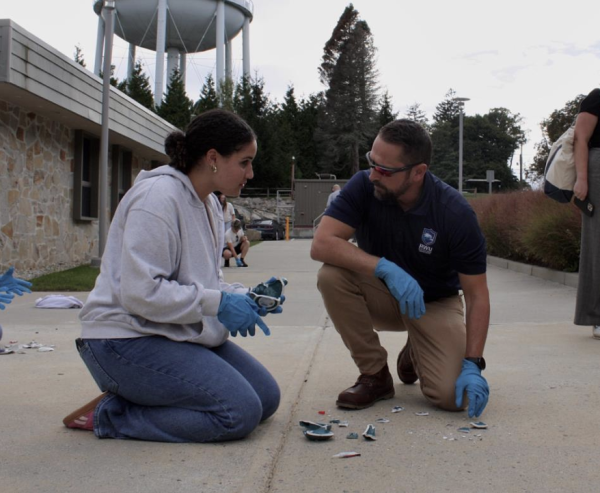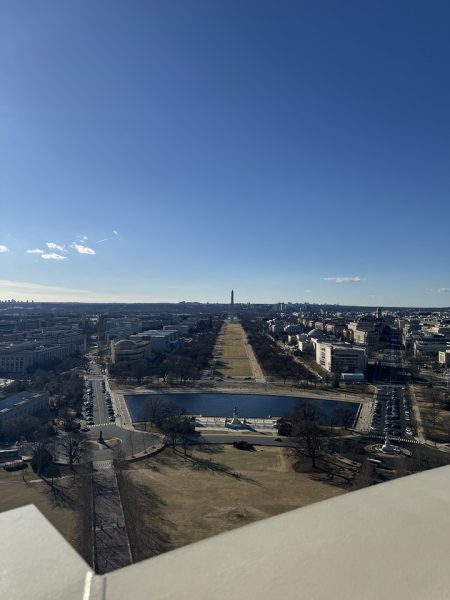Women who paved the way: Jeannette Rankin
Courtesy of Library of Congress’s Prints and Photographs Division
Jeannette Rankin was a fierce advocate for women’s suffrage and became the first women to have a seat in U.S. Congress.
In light of Women’s History Month, The Hawks’ Herald is featuring important women from throughout history. The second week of March highlights women who have paved the way in politics.
Jeannette Rankin was born on June 11, 1880 in the Montana territory and was the oldest of seven children. In 1902, Rankin graduated from Montana State University with a degree in biology and began teaching. She did not teach for long and went on to be an apprentice to a seamstress in Missoula.
In 1904, she went to San Francisco for a trip to see her uncle and began volunteering at the Telegraph Hill settlement house where her interest in social work began.
Rankin then applied to the New York School of Philanthropy and graduated in 1909. She moved from New York to Spokane, Washington after she graduated and began working to assist children in need. In hopes of becoming a reform advocate, Rankin began taking social science classes. She started volunteering as a student with the local women’s suffrage campaign in the state of Washington.
Washington would become the fifth state to adopt women’s suffrage in 1910. In recognition of her work, Rankin got a job as a field secretary at the National American Woman Suffrage Association (NAWSA).
She visited Montana in 1910 where she learned that the women’s suffrage resolution would soon be introduced in the Montana state legislature. She soon learned that the resolution was part of a hoax but she was able to convince a lawmaker to actually introduce the resolution.
In 1911, Rankin became the first woman to address the Montana legislature and her testimony proved successful as she was able to convince a majority of the House to support the cause. Her testimony also gave new life to a long-dormant women’s suffrage movement in Montana. She led the efforts in Montana and in 1914, Montana passed a law allowing women’s suffrage.
On July 13, 1916, Rankin declared her candidacy for one of Montana’s seats in the House as a Republican candidate. She ran on a platform supporting alcohol prohibition, child welfare legislation and nationwide women’s suffrage. That August, she won the Republican primary by more than 7,000 votes.
In Nov. 1916, Rankin became the first woman to hold a seat in Congress. On the day the 65th Congress convened for the first time, Rankin proposed her first bill: the Susan B. Anthony amendment aimed at protecting and guaranteeing women’s suffrage in the Constitution.
In 1917, she was part of the minority that voted against entering the war against Germany, which lost her supporters in Montana. In July 1918, Rankin decided not to run for reelection but instead declared her candidacy for the U.S. Senate.
Rankin lost the primaries but was nominated by the National Party. She ended up losing the election and began lobbying for social welfare legislation after being hired by the National Consumers League.
She left the National Consumers League in 1924 and moved to Georgia. She started a study group on anti-war foreign policy, which would later become the Georgia Peace Society. In the 1930s, Rankin began working as a congressional lobbyist, this time for the National Council for the Prevention of War (NCPW).
She would work this job until her resignation in 1939 as she opposed President Franklin D. Roosevelt’s foreign policy. In 1940, Rankin returned to Montana where she once again ran for a seat in the House and won.
By this time, World War II was beginning and much of Congress’ work revolved around United States participation. In 1941, Rankin once again voted against participation in the war — she was the only no vote.
Her vote cost her much of her support and in 1942, she did not run for reelection. In the time of the Vietnam War, Rankin organized protests and led groups against the war. In 1968, she organized a protest of 5,000 people who marched on Washington to present a peace petition. She remained vocal about her opposition to the war and even thought about running for a seat in the House at the age of 92 so she could protest the war.
Rankin passed away on May 18, 1973 at the age of 92. Her work in the women’s suffrage movement and her work in Congress will long be remembered as she broke down barriers in a male-dominated world.
Emily Dvareckas graduated from RWU in 2022 with a degree in forensic science. She spent three years with The Hawks’ Herald as the photo editor...






